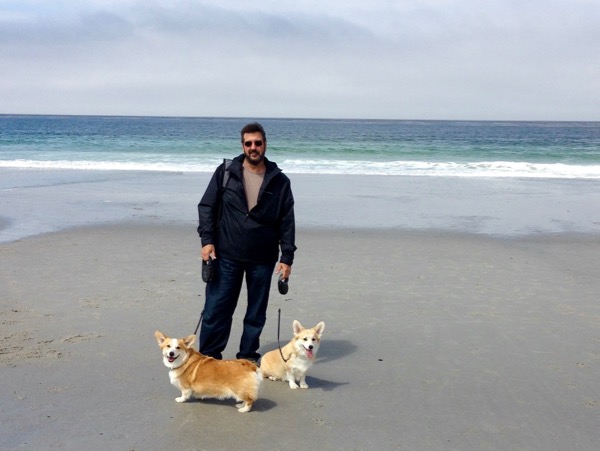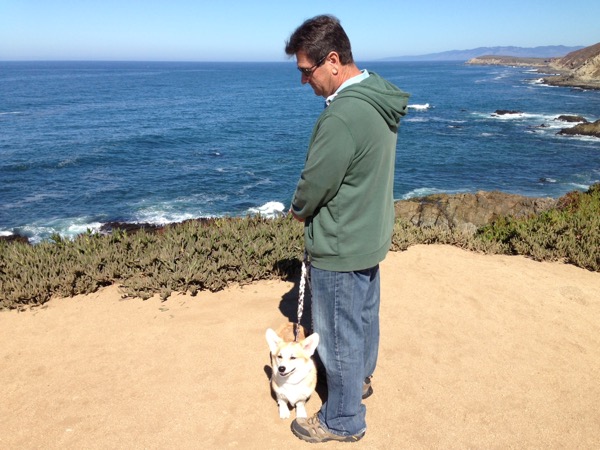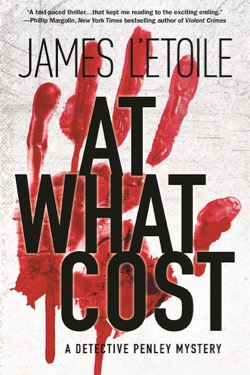The biggest physical challenge for me, at first,
were the dozens of paper cuts from rejection letters.
Adapting to the demands of writing was a huge adjustment from working in a prison environment. I worked nearly thirty years in prisons, parole, probation and managing prison operations. There were no longer the stress-filled days, or danger of getting stabbed or assaulted, but my body took a few years to realize that shift.
I traded walking the yard, housing unit and halls, for solitary confinement at my writing desk. That isolation came with wrist and hand pain from overuse, a tendency to skip meals and eye strain from staring at a bright white blank page on my monitor. That empty page prodded me to skip regular exercise (or yard time — as we called it in prison) to get the words down.
There is a different stress on the body from that experienced on a prison tier. And it needs to be managed. When I retired, my resting heart rate was 100 bpm. The average life expectancy of a retired correctional peace officer is just a bit over three years. I plan to make the needle shift a bit higher on that range.
 Why Writers Need a Dedicated Working Space
Why Writers Need a Dedicated Working Space
When i jumped in the writing game, I wrote anywhere I could—the couch, the kitchen table, the dog’s bed—any open space. So getting a dedicated space helped set the routine with a desk that gives me a place to sit and work without straining my back or neck. That’s reduced the number of headaches due to eye strain and lessened the whole carpal tunnel issues.
(God, does this sound as bad as I think it does—an old guy complaining about aches and pains?)
I do my writing on a MacBook and I’ve found it helps to use a wireless keyboard. It gives me full size keys and I can adjust it to a comfortable angle. I tend to bang on the keys pretty hard (especially during the exciting parts) and I have replaced keyboards at the rate of one for every three manuscripts.
The biggest change isn’t with the office set up—it’ me. I’ve made it a point to get out of the chair and move.
Write for an hour, then go do some yard work, or woodworking. The biggest assist in making a healthy change is my two Corgis, Tanner and Emma. When these guys come and drop a toy at your feet, it’s kind of hard not to stop what you’re doing and go play, or take them for a long walk.

The Similarities Between Writing and Working in a Prison
I think working in a prison and being a writer have a lot in common.
No one likes you—get over it. Sure the writing process drives rejections. That’s part of it. I thought my first manuscript was all ready to meet the world. It wasn’t.
When you’re starting out, you don’t know what you don’t know.
That lack of experience drives self-doubt and depression. Couple that with the complex business process used by the publishing world and it’s very easy to get overwhelmed. You begin to second guess yourself and change your writing, or worse yet, change your voice to meet what you “think” your audience wants to read. That hollow writing will fall flat and your readers won’t buy in.
The best advice I’ve heard came from Michael Connelly at a writing conference. He said, “You have to write books that you want to read. If you want to read it, chances are someone else will too.”
The Best Way Writers Can Work Out Stored-Up Anxiety
Working in prison was a bit of a two-edged sword in preparing to become a writer. You learn to develop a thick skin from insults and death threats, so a rejection doesn’t have that same sting. The problem is you still “feel” it.
I do what most guys do, you stuff that emotion down so far that it will only come up on the third full moon during a leap year. That’s not healthy.
Writing has proven to be a therapeutic tool. My resting heat rate is back down without medication. What better way to work out your stored-up anxiety then blowing up something on the page.
Sometimes that’s not cathartic enough, so I have to get outdoors. I’ve been fortunate to live in rural setting or most of my life and sitting under a tree, or walking on the beach, is a from of instant decompression. Then you add the Corgis to the mix and when I’m feeling a bit down, they know it and how can you look at those faces and not smile.

How Writers Can Lessen the Sting of Rejection
I don’t believe I’ve ever been discouraged to the point of tossing in the towel. Sure, the rejection stings a bit and sometimes it’s hard not to take it personally. You’ve worked you butt off on this thing and you come to the realization that it will never see the light of day. It could be disheartening, I suppose, but I’ve taken it as a write of passage.
I’ve written two published novel-length works, with two more in the pipeline. I couldn’t have gotten to this place without writing the four or five more that will never be released. I’ve learned from it and I’m a better storyteller, I believe, for that investment in the work.
Whenever I feel crappy about my place in the world, I take a look at the misfortune of others. My wife and I take our Corgis to memory care facilities, hospice, assisted living units and other locations where the company of a good dog can make a difference in someone’s day. You see these people suffering, from no fault of their own, and it really breaks your heart.
Alzheimer’s, dementia, cancer—kinda makes something like a rejection letter seem pretty trivial in comparison.

Writers Need Other People
It’s kind of difficult to point at one thing [that keeps me true to my path]. If I have to, I’d say it’s people—the right people.
Among the lessons I learned along the way was that I can’t do this all alone. The writing is a solitary pursuit, but after that—I can’t do it all. I needed people. I found the best agent for me, Liz Kracht of Kimberley Cameron & Associates, and I trust her completely. If she tells me something isn’t working in a particular chapter, then I to go fix it. I don’t get defensive, or argue about it. She’s proven right more times than I can count.
She was able to place my work with a great publisher in Crooked Lane Books. I let editors, edit, publicity experts work out the PR angle and that allows me focus on what I can control—the writing.
Advice for a Young Writer: Realize that Writing is a Business
I’d tell them the writing is the easy part. Writing something that is commercial viable is a whole different thing.
I’d suggest they get over the whole notion that “Writing is my art and no one can tell me to change it.” Poppycock. If a publisher is going to invest in your work, spend time and money on the edits, packaging and promotion of that novel, perhaps with a fat advance check—they get to fiddle with it.
This is business. If you can’t accept that and still have fun with it-then don’t do it.
* * *
Author James L’Etoile’s crime fiction work has been recognized by the Creative World Awards, Acclaim Film and the Scriptapalooza Television Script Competition. Specializing in gritty crime fiction, his complex, edgy stories are fueled by two decades of experience in prisons and jails across the country. Realistic crime fiction requires an eye for detail while immersed deep within the darkest criminal elements. James brings these stories to life with his background in probation, parole, investigation and prison operation. An experienced Associate Warden, Chief of Institution Operations, Hostage Negotiator and Director of Parole, James is unique among crime fiction authors.
For more about James, please see his website, or connect with him on Facebook, Twitter, or on his Facebook author page.
 At What Cost: What would you do to save your child?
At What Cost: What would you do to save your child?
Detective John Penley and his new partner, Detective Paula Newberry, of the Sacramento Police Department are tasked with leading the investigation into a local serial killer who has dumped three bodies in the past six weeks–and all of them are missing their internal organs. But while pursuing a lead, the detectives stumble upon a personal message the killer left behind for Penley. And it’s attached to a human kidney.
How could the killer know Penley’s son is on the kidney transplant waiting list? Now Penley’s baited into an impossible trap that could jeopardize his entire career. Will the detective take down the killer and place his faith in the medical establishment to heal his son? Or, will he make a deal with the devil for the transplant organ his son needs to live?
At What Cost, James L’Etoile’s engrossing new mystery, is a heart-stopping thrill ride that will keep readers guessing at every turn. Fans of Michael Connelly and Thomas Perry won’t be able to put this down.
Available at Amazon, Barnes & Noble, and IndieBound.

